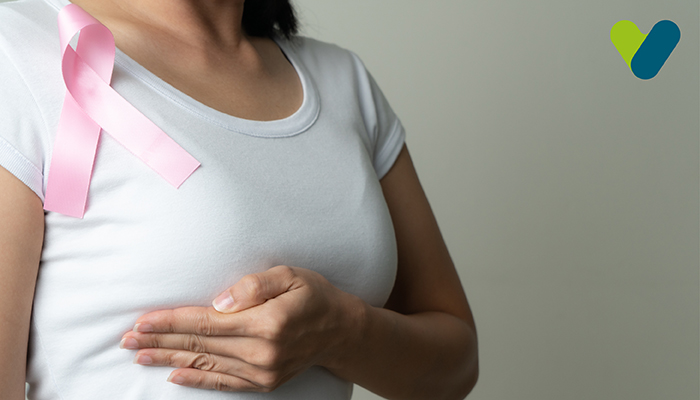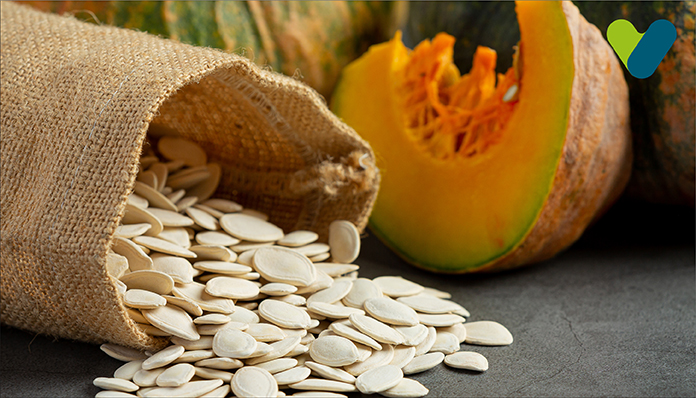Breast cancer is a common killer worldwide and in India with statistics indicating that 25 to 33 women in every 1 lakh Indian women suffer from breast cancer and that 12 in every 1 lakh Indian women die from breast cancer. The country witnesses over 2.5 lakh new breast cancer cases every year.
Breast cancer and breast health awareness are now very common as part of women's health campaigns and CSR by brands that cater to women. But pinning a red or pink ribbon on one's chest doesn't exactly achieve much, does it. Of course, some campaigns go a step further and include screening camps: hats off to such efforts.
In India, breasts are either something sexual to be giggled about, ogled at or nudged and groped by creeps at public places. Or alternatively, something to be covered with a dupatta.
But beyond that, breasts are not a topic at all - just like other components of women's health, like menstruation, old school Indian culture sidesteps any conversation around breasts, even in the household and even between mothers and daughters. Of course, there are more modern mothers and more globally evolved daughters who defy these stereotypes, but they would represent the smaller section of the population. Moreover, even amidst India's growing open-minded lot of people, awareness about breast cancer - and more importantly cognisance of the fact that it can strike even younger women - is extremely lacking.
Given this status quo, good job at least getting to the point where you're reading this article and developing some awareness. You have taken the first step in the right direction and from here you can move to mindfulness and then to action.
4 Key Tips on Maintaining Good Breast Health:
Get an early start
Periodic breast exams at the gynecologist's office and independent breast exams are a must. Find yourself a gynecologist whom you are comfortable with. For example, go ahead choose a lady gynecologist without any shame whatsoever, if the gender of the gynecologist has a bearing on your comfort levels.Your gynecologist can guide you on how to regularly check for lumps independently and you should have a routine exam (and in fact a 360 degree gynecological checkup) once every two years after you turn 30 and annually in your 40s.
A sizable 5% of breast cancer victims are under 40 years old. Do not think you're not at risk because you are young.
Similarly, a mammogram should be undertaken annually and must definitely be the course of action if any abnormalities or lumps in the breast are witnessed. This can help with arresting breast cancer - if any - and preventing the spread of the cancer to other body parts.
9 out 10 women who are able to diagnose breast cancer early, survive their battle against it. The silver lining in breast cancer versus any other kind of cancer is that one can easily arrest the spread of the cancer, and the woman does not have to forgo any vital-for-normal-survival organs. Besides, Angelina Jolie has proved that a mastectomy is not the end of attractiveness.
Signs to watch for
Women of all age groups should watch for signs and symptoms that might indicate breast cancer. Some of these signs are:- Lumps
- Nipple discharge outside of pregnancy
- Pain that is not related to period-linked tenderness
- Changes in the colour or texture of skin
- Any other abnormalities and changes
Fundamentals of testing
Here is a collection of important points that you should be aware of with regards to breast cancer testing.- Mammograms are typically not advised for women under 40. The gynecologist will possibly simply do a breast examination.
- Mammograms are however recommended for women with genetic mutations from age 25.
- For women with a family history of breast cancer, the women in the direct bloodline should undergo their first test 10 years after the first relative showed symptoms whether or not the women are 40 years old.
- False-positives aren't just a Covid-19 test reality. They can even happen with mammograms. Don't be immediately alarmed especially if you are in your 40s or your 50s as this demographic witnesses the highest amount of false positives.
- For women who are considered high risk, the doctor might also ask for a breast MRI in addition to a mammogram.
- Mammograms are painful. This is just a harsh reality. Prepare yourself mentally - we are gifted with a high threshold for pain, clearly, since our bodies manage to bear period pain, childbirth, plucking of eyebrows, waxing and bikini waxing. If you can bear pain for vanity, surely you can do it for longevity.
- Mammograms are expensive. The digital ones even more so. But a mammogram still costs only a fraction of what a girly getaway to Thailand, a new smartphone or your years worth of shopping costs. Get your priorities right.
Habits for good breast health
You care for your skin so why not care for your breasts? Here are some essential practices in good breast health:- Maintain a healthy body weight
- Moderate the consumption of alcohol
- Quit smoking
- Breast feed (yes breastfeeding had been found to reduce the chances of breast cancer)
- Regular physical activity
- Although scientific evidence is lacking against underwire bras, limit their use to when needed and avoid wearing one when you sleep


